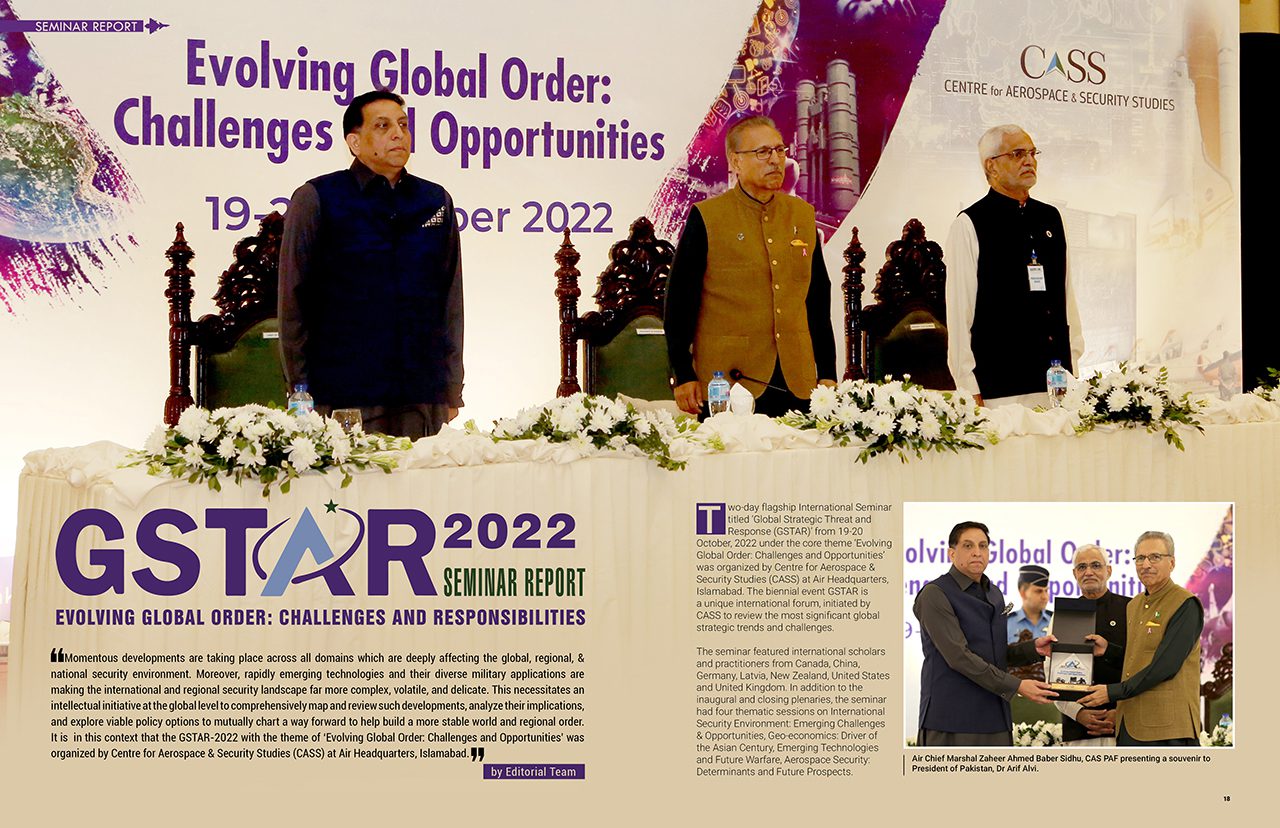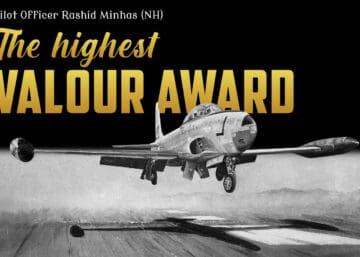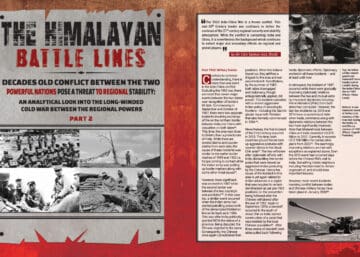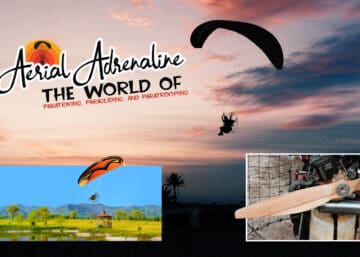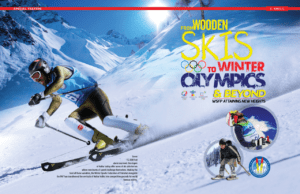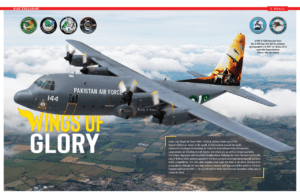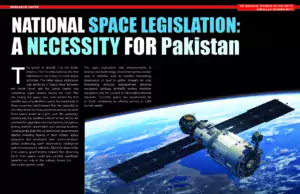Evolving Global Order: Challenges and Responsibilities
Momentous developments are taking place across all domains which are deeply affecting the global, regional, & national security environment. Moreover, rapidly emerging technologies and their diverse military applications are making the international and regional security landscape far more complex, volatile, and delicate. This necessitates an intellectual initiative at the global level to comprehensively map and review such developments, analyze their implications, and explore viable policy options to mutually chart a way forward to help build a more stable world and regional order. It is in this context that the GSTAR-2022 with the theme of ‘Evolving Global Order: Challenges and Opportunities’ was organized by Centre for Aerospace & Security Studies (CASS) at Air Headquarters, Islamabad.
Two-day flagship International Seminar titled ‘Global Strategic Threat and Response (GSTAR)’ from 19-20 October, 2022 under the core theme ‘Evolving Global Order: Challenges and Opportunities’ was organized by Centre for Aerospace & Security Studies (CASS) at Air Headquarters, Islamabad. The biennial event GSTAR is a unique international forum, initiated by CASS to review the most significant global strategic trends and challenges.
The seminar featured international scholars and practitioners from Canada, China, Germany, Latvia, New Zealand, United States and United Kingdom. In addition to the inaugural and closing plenaries, the seminar had four thematic sessions on International Security Environment: Emerging Challenges & Opportunities, Geo-economics: Driver of the Asian Century, Emerging Technologies and Future Warfare, Aerospace Security: Determinants and Future Prospects. The seminar highlighted the significance of technological advancement, global strategic threats and response management in the wake of future aerial warfare.
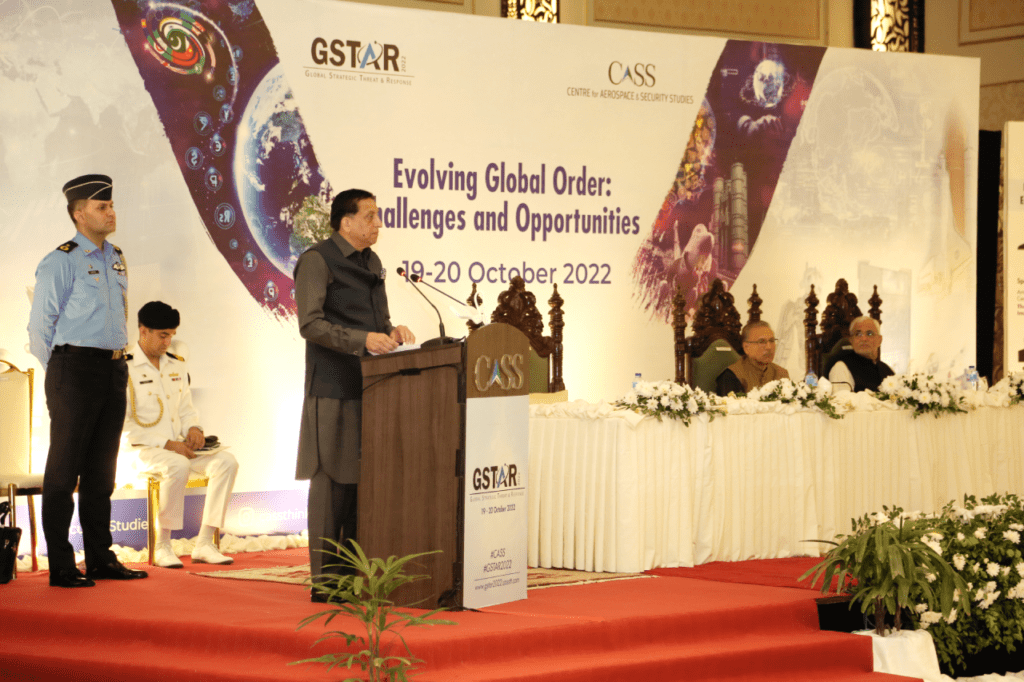
During the inaugural ceremony, Dr Arif Alvi, President Islamic Republic of Pakistan was the chief guest. On his arrival at Air Headquarters, Islamabad he was received by Air Chief Marshal Zaheer Ahmed Baber Sidhu, Chief of the Air Staff, Pakistan Air Force.
President Dr. Arif Alvi in his inaugural address appreciated the PAF’s key initiatives directed towards maximising the field of knowledge into its operations. The President appreciated the CASS administration for the conduct of a thought provoking seminar on the contemporary strategic issues. The President said, “The complex dynamics of the world politics has exponentially changed the traditional balance of power and security environment which demands befitting response through national cohesion. The present era marked the creation of new centres of power created by technology and wealth, therefore, there is a need to construct a new order on the basis of equality of humans, respect for human security, harnessing of new technology and a commitment to peace.”
Earlier CAS in his welcome address said, that the growing rivalry between major powers had resulted in weakening of international institutions and emergence of traditional and non-traditional security issues. In the context of new technologies, he highlighted the dangerous consequences of selective sharing and its effect on regional stability. The Air Chief emphasised on the need for international consensus to address the challenges of these technologies. He reiterated the resolve of the PAF to contribute towards securing the national interests of the country. In this regard, he informed about significant initiatives being planned in various domains including operations, capability enhancement, organization and training, to make PAF a cutting-edge force.
The Air Chief also announced the formal launch of the National Aerospace Science and Technology Park (NASTP) aimed at giving impetus to the process of indigenization and technology drive in the country. The first park of its kind would be inaugurated this year while two others would follow in near future.
Later, President Dr. Arif Alvi met Air Chief in his office. The President was briefed on the operational readiness and PAF’s unflinching resolve to ward off any external threat to national security. CAS highlighted PAF’s comprehensive plan for growth of in-country capabilities in the well-established as well as emerging disruptive technologies in Aerospace, Cyber, IT and Artificial Intelligence domains.
While acknowledging the critical role of PAF in the defence of motherland, the President underlined the importance of air force in contemporary geo-political milieu. He lauded PAF’s efforts and contributions beyond call of duty by assisting the government of Pakistan in responding to natural calamities. He expressed highest level of confidence in the visionary PAF leadership and stated that PAF’s Human Resource, technical, operational and industrial domains were well poised to achieve excellence which had always been a hallmark of Pakistan Air Force.
SESSION 1
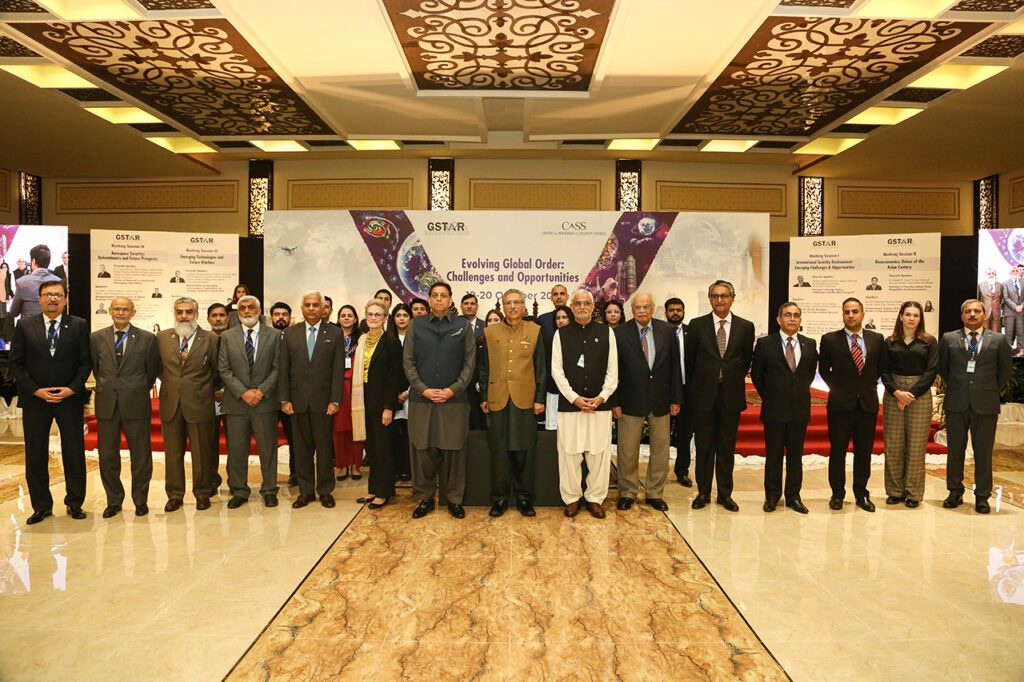
Speakers of Working Session I on ‘International Security Environment: Emerging Challenges & Opportunities’ included Ambassador Robin L. Raphel, Senior Advisor, Center for Strategic and International Studies, USA; Dr Yan Xuetong, Dean, Institute of International Relations, Tsinghua University, China; and Ambassador Riaz Mohammad Khan, Former Foreign Secretary, Government of Pakistan. The session was moderated by Ambassador Jalil Abbas Jilani, Advisor Foreign Affairs at CASS. According to Ambassador Robin Raphel, strategic competition with China required a major allocation of diplomatic, strategic and economic resources; and stressed that the US Indo-Pacific Strategy would provide an opportunity for stable balance of power in the region. On the other hand, Dr Yan Xuetong argued that China-US competition was going to get worse in the next decade. He warned that deglobalisation in the future could create both traditional and non-traditional challenges for nations around the globe. He also highlighted that data technology had changed the concept of warfare in the world. ‘It is, unfortunately, being used in disinformation campaigns creating challenges for developed and developing nations’, he said. Discussing ‘US-China Rivalry: Options for Pakistan’,Ambassador Riaz Mohammad Khan agreed that China was focusing on its linkages in the Asia-Pacific in cooperative terms; and countries would have to adjust to different dimensions of US-China rivalry.
SESSION II
Dr Moeed W. Yusuf, Former National Security Advisor, Government of Pakistan was the keynote speaker for the second session ‘Geoeconomics: Driver of the Asian Century’, while other speakers included Dr Una Aleksandra Bērziņa-Čerenkova, Head China Studies Centre, Riga Stradins University, Latvia; Dr Karl J. Moore, Associate Professor, McGill University, Canada; and Dr Wang Wen, Executive Dean, Chongyang Institute for Financial Studies, China. Dr Usman W. Chohan, Director, Economic Affairs and National Development, CASS, moderated the proceedings. In his keynote address, Dr Moeed W. Yusuf emphasised the need for Pakistan to keep economic security at the core of its security matrix, which he said required a focus on geoeconomics, without overlooking geostrategy. To that end, he said, Pakistan must aim to develop regional connectivity and seek development partnerships rather than aid partnerships. He cautioned that the world was moving towards ‘economic nationalism’ marked by increasing restrictions, sanctions and coercive measures. Countries, he argued would need to be highly competitive to be successful in such an environment. Speaking from Canada, Dr Karl Moore highlighted that while there were echoes of the past in modern-day globalisation, the two were vastly different.
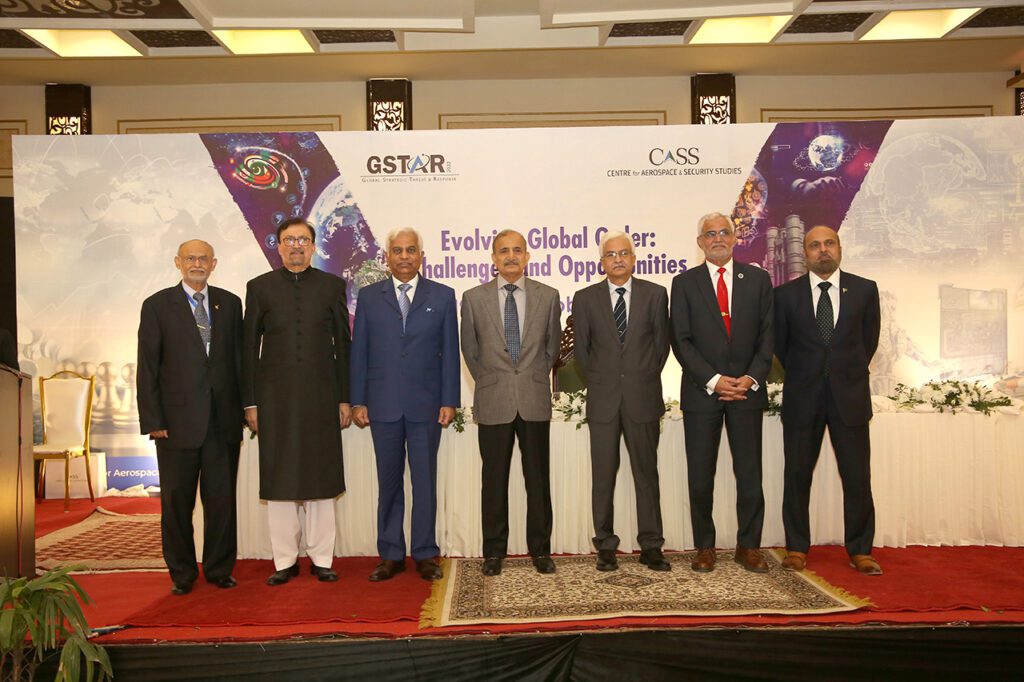
However, China throughout ancient, medieval, and even modern times, had remained the only country that had always played a central role. In his view, the fragility of globalisation was leading to more focus on regionalisation. according to Dr Una Aleksandra Bērziņa-Čerenkova, geoeconomics was a welcome lens in a debate saturated with security discourse. She agreed that US-China competition had expanding and noted that China’s ambitions were just as strong as the US. ‘We have been under the impression that economic interdependence can deter. There is some truth to it. But when ambitions and strategies trump these arguments, it is not a deterrent’, she said. Dr Bērziņa-Čerenkova stressed that middle and small country agency among big rivalry was paramount for stability. Speaking on peaceful regional connectivity and prosperity, Dr Wang Wen from China stressed that 40 years of peace had delivered an era of prosperity in East Asia. This, he said, had been possible despite a diverse cultural, religious, and political environment. He emphasised on the continuity of policies and focus on integrated regional connectivity for prosperity in the Asia-Pacific region.
SESSION III
In working session III on ‘Emerging Technologies and Future Warfare’, Lieutenant General Khalid A. Kidwai, NI, HI (M) (Retd), Advisor National Command Authority & Former Director General, Strategic Plans Division, Government of Pakistan was the keynote speaker, while other distinguished speakers included Senior Colonel Yang Jun (Retd), Senior Research Fellow, China Institute for International Strategic Studies (CIISS), China; Dr George Malcom Moore, Scientist-in-Residence & Adjunct Professor, James Martin Center for Non-proliferation Studies, Middlebury Institute of International Studies, USA; and Ms Marina Favaro, Senior Research Fellow, Institute for Peace Research & Security Policy, University of Hamburg, Germany. Air Marshal M. Ashfaque Arain, HI (M), SBt (Retd), Advisor Chief of the Air Staff on CASS Affairs and Director Emerging Technologies, CASS, moderated the proceedings. In his keynote address, Lt General, Kidwai (Retd) emphasised the fact that emergence of new technologies was not a new phenomenon but a constant historical fact which was likely to continue in the future as well.
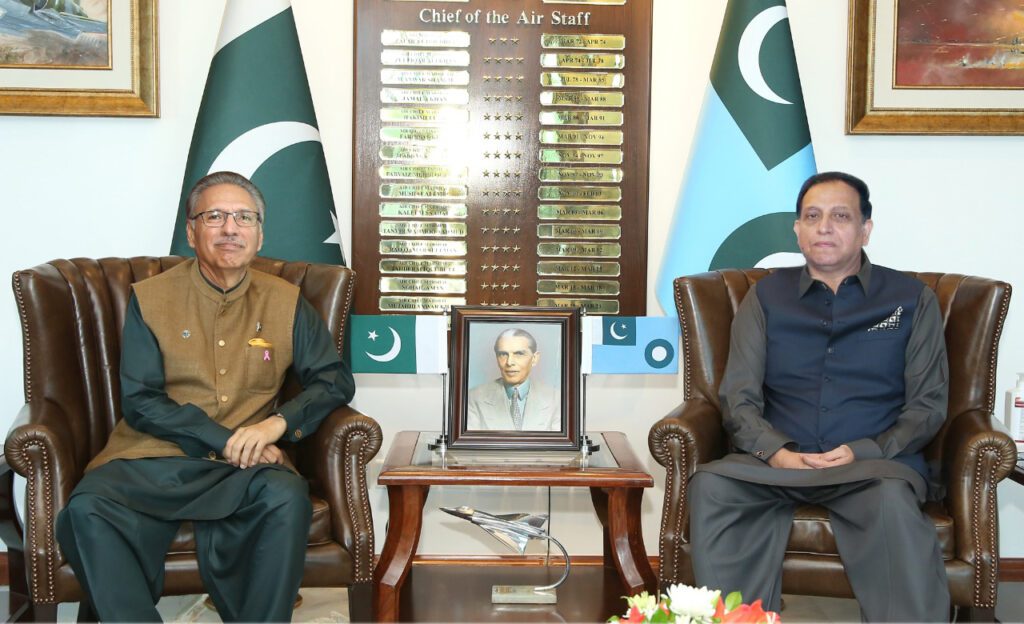
A spectacular technology, when inducted in a weapon system, tends to affect stability for a while but soon a counter technology or antidote is developed which acts to restore the stability. In the context of South Asia, Lt. General Kidwai said that the West in its bid to strengthen India as a counterweight to China has been violating international rules and norms by arming and selectively sharing technologies with it which has put strategic stability in the region under stress. India, on the other hand, he said, has always been careful to follow its interests rather than completely playing to one side. Lt. General Kidwai at the end reiterated that Pakistan like always would respond to restore stability in the region. Senior Colonel Yang Jun from China discussed how future warfare could only be won by grasping the laws and characteristics of modern warfare, jumping out of the box of traditional thinking and stereotypes and taking into consideration systems, data and algorithms, exploring new operation concepts, designing new approaches to victory, strengthening the integration of warfighting & technological development and that of research and operations, and drawing on others’ strengths to make up for one’s own shortcomings.
In his presentation, Dr George Moore from the US discussed how the current and future proliferation of drones and Lethal Autonomous Weapon Systems had changed both military and civil security, including the impact of AI and removal of the human element from lethal decision-making. He opined that the potential use of drones, particularly Uncrewed Aerial Vehicles would lower the threshold for conflict given the ongoing issues raised by UAV operations in Ukraine. ‘There are no conventions or agreements governing use of drones. This area could gain prominence after the Ukraine war,’ he concluded. Ms Marina Favaro from Germany defined emerging technologies as those scientific discoveries and technological applications that had not yet reached maturity or were not widely in use, but were anticipated to have major – perhaps disruptive – effect on international peace and security. She cautioned that great power competition would be the main driver behind future research and development in the US, Russia, and China. ‘A possible China-Russia alliance could confront the US with serious military-technological challenges’, she concluded.
The two-day international conference was attended by diplomats, senior military officers, and heads of various think tanks, scholars, journalists and students.
